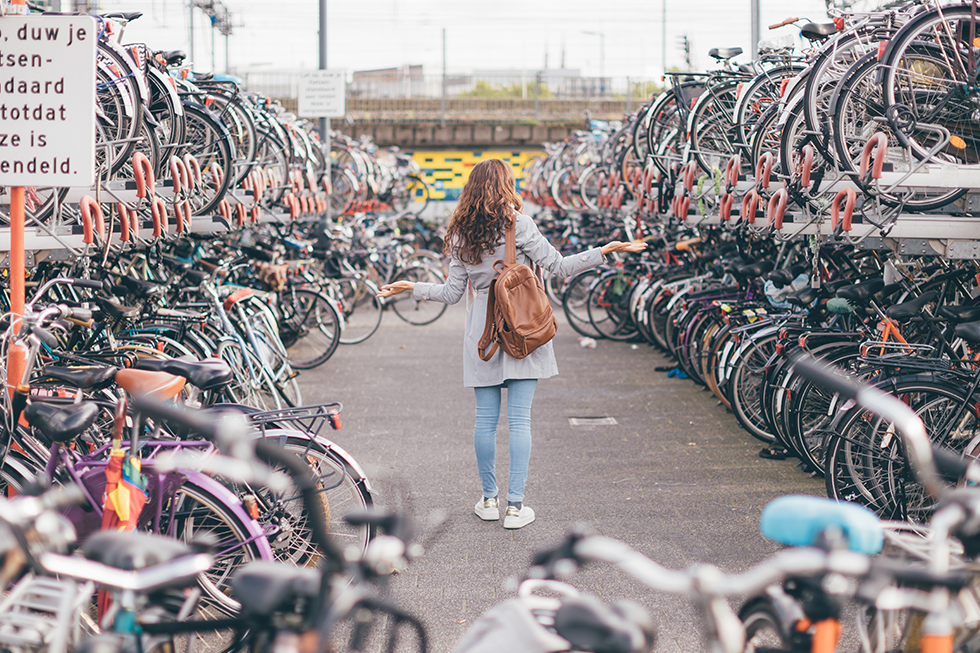Stages of Cultural Shock in the Netherlands
The idealization to travel and explore the world or even living in a new country is wished by many. However, it is often underestimated what the emotional stages that a person will experience during their travel or life in a new country. When abandoning a familiar social environment to plunge in a new culture people will be exposed to culture shock. While some people may be able to quickly adapt to their new surroundings, others take a longer time to get their groove on amidst settling down in a new environment. Cultural differences are not to be underestimated as every person is different and there is no time limit as to when you must get used to being overseas. This blog will guide you through the four stages of culture shock and what you can expect in the Netherlands on each stage.
Cultural Shock
Cultural shock can be experienced by everyone at different degrees depending on different factors. Anthropologist, Kalervo Oberg (1954) defined cultural shock as “a series of emotional reactions precipitated by the anxiety caused by the loss of familiar symbols in social exchange and the adjustment to which we are forced to adapt.”
There are four stages of culture shock that a person can experience: honeymoon, crisis, adjustment, and adaptation. The degree as to how the person can be affected or recovered varies. Not everyone experiences all these stages.

1. Honeymoon Stage
The honeymoon stage is the first stage of culture shock and can last for several weeks or even months. This is the euphoric phase when you are fascinated by all the exciting and various aspects of your new life – from the sights and smells to the pace of life and cultural habits.
During this phase, you are quick to find similarities between the new culture and your own, and you find the locals welcoming and friendly. You may even find things that would be a nuisance back home, such as a traffic jam, amusing and charming in your new location. Unfortunately, the honeymoon period must always come to an end.
As a recently arrived in the Netherlands you can find that Dutch people are very friendly and that biking in the Netherlands is an excellent and healthy method of transportation. You will fall in love with the canals the organization that the country, and the real life views of the traditional postcards.
2. Crisis Stage
Next is the stage of distress or anxiety and here is where the shock starts to occur. This stage is characterized by frustration. It usually hits around the three-month mark, although it can be earlier for some individuals. As the excitement gradually disappears you are continually faced with difficulties or uncomfortable situations that may offend or make you feel overwhelmed.
The simplest of activities may set you off such as not being able find your favorite homemade ingredients abroad or not being able to read the signs in a foreign language. At this stage you will miss your friends and family back home, but you will also compare and idealize the life you had. As a result, you will not find the locals so friendly anymore and you can experience confusion, discontent, sadness, and even anger.
The Netherlands is known for being a rainy country, thus if you fell in love with the excellent idea of biking, you are now probably disliking the idea of commuting to work in a bike under the rain and will miss your car from back home. You will realize that the Dutch diet is quite different from your home and that the Dutch can be sometimes direct.
3. Adjustment Stage
This stage can be visible between the sixth and twelfth month of arrival to the new country. Here you will be more acquainted with the local food, customs, and traditions and will begin to make new friends. You will also be more settled in the country and life will get better as a routine sets in. Nevertheless, you may still experience some difficulties at this stage, but you are able to handle them in a more rational and measured way.
You will realize that rain in the Netherlands is not as intense and biking to work is doable, many Dutch do it on daily basis. Also, Dutch food might not be your favorite, but you have found that Dutch snacks are not terrible. In fact, you will fall in love with stroopwafels and hagelslag. You will start noticing that you are more direct than when you arrived.

4. Adaption Stage
During this final stage, you will now feel more comfortable in the new country and will be better adapted to your new way of life. You no longer feel isolated and lonely and are used to your new daily activities and friends. While you may never get back to the heightened euphoria you felt during the honeymoon stage, you will have a keen sense of belonging.
You will now know that there are alternative ways to commuting to work that do not involve a bike and that there are shops that sell some of your food products from back home and you might even start liking the fact that Dutch are direct.
What Happens When You Return Home?
After you have completed your travels or temporary stay in a new country, it is time to return home and you will experience reverse culture shock. You may quickly realize that things are quite different from when you left and will feel like you no longer fully belong as your family, friends and even your hometown have changed and functioned fine without you. That is not to say that they will not welcome you back.
You might find yourself saddened that your newly learned customs and tradition are not applicable in your home country, and you must go through the process of adjustment and adaptation all over again. You might even miss biking and buying flowers for cheap!
When in Rome…
Over time the transition into a new home and workplace will become easier. If you are observant and flexible in your approach it may lead to efficiency. It is likely that procedures run differently, and that the local population have different perspectives and the country is run by a different rule of law. By recognizing the existence of culture shock for what it is and finding ways to cope, you can prevent culture shock from ruining an otherwise fantastic experience abroad.
Are you looking to work in Dutch healthcare?
Whether you already live in the Netherlands or are looking to come from abroad, if you do not have sufficient knowledge of the Dutch language and culture then EMTG can help you get started. We understand what it is like to move to a foreign culture, as a matter of fact, over 450 international nurses have joined EMTG so understand the stages of culture shock that you will go through. Should you decide to join the EMTG program, we shall provide you with a job mentor to make the transition into the Netherlands much smoother. You can contact us to follow Dutch courses so that within 3 months you will to be allowed to carry out your profession as a Health Care Professional in the Netherlands.